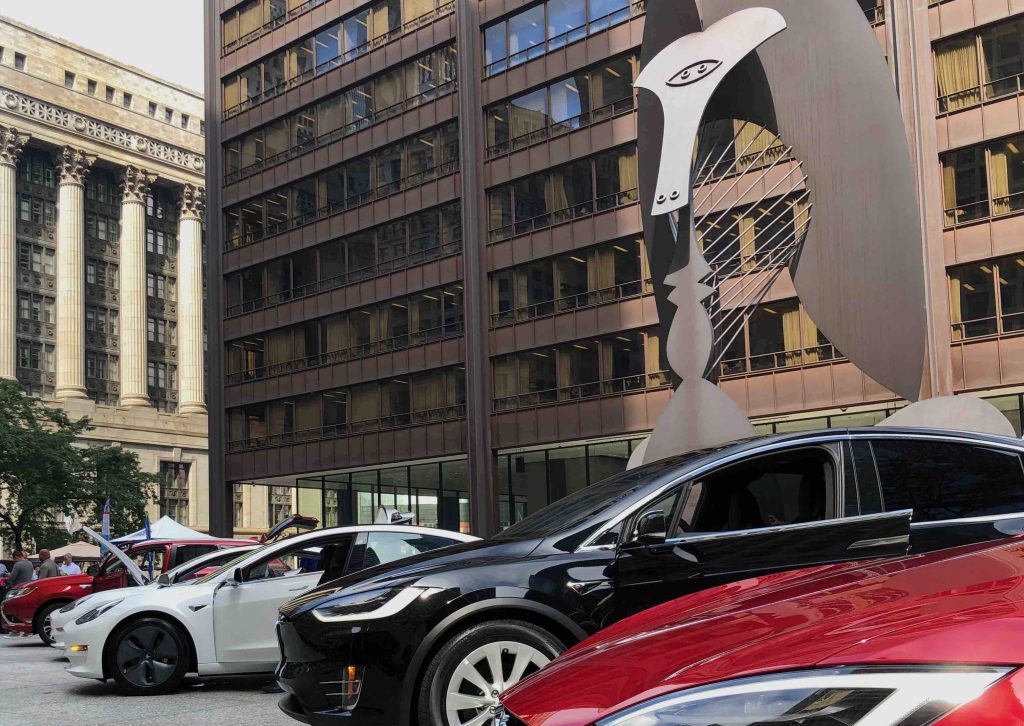CHICAGO, Sept. 15, 2020 – As Illinois takes steps to rebuild its economy and improve health outcomes in the midst of the COVID-19 pandemic, the American Lung Association released a new report today showing that transitioning to zero-emission transportation solutions in Illinois by 2050 will save hundreds of lives, prevent thousands of asthma attacks, and avoid billions of dollars in health costs as a result of significant pollution reductions.
“The Road to Clean Air” report outlines the broad benefits of Illinois’ transition to an electric transportation sector over the coming decades, avoiding approximately 274 premature deaths and preventing more than 4,106 asthma attacks and 18,735 lost workdays per year based on emission reductions in 2050. These public health benefits to Illinois are valued at over $3.2 billion based on pollution reductions in 2050.
Members of Illinois Clean Air Now (ICAN), a coalition of clean energy, health advocacy and transportation industry stakeholders, called on Illinois policymakers to act on the American Lung Association’s study.
“This report highlights the urgent need to electrify our transportation systems so we can reduce the air pollutants that are harming Illinois communities,” said ICAN member John Walton, chair, Chicago Clean Cities Coalition. “It also reinforces several factors that we already knew, such as why we should be moving away from fossil fuels. Let’s not waste this opportunity to move forward; instead, let’s use it to make positive changes that can lead to cleaner skies and better health outcomes for everyone.”
Fossil fuel-powered vehicles produce air pollutants that harm human health and affect nearly every organ system in the body. Transportation accounts for the largest portion of harmful greenhouse emissions in the United States, and its negative effects fall disproportionately on low-income communities due to their proximity to roadways and transportation hubs.
The American Lung Association’s 2020 “State of the Air” report found significant disparities in terms of people of color residing in counties with failing grades for ozone and/or particle pollution. For example, people of color were 1.5 times more likely to live in a county with at least one failing grade, and 3.2 times more likely to live in a county with a failing grade for unhealthy ozone days, particle pollution days and annual particle levels.
“The Road to Clean Air” analyzed the public health, air quality and climate change benefits that could be achieved if steps are taken now to ensure widespread transportation electrification in the coming decades. It found that Chicago alone can realize $2.9 billion in health savings by 2050.
“The results are clear: transportation pollution is hurting Illinois’ health and economy, and becoming a clean transportation state is the fastest way to reverse this harmful trend,” said Brian P. Urbaszewski, director of environmental health programs at the Respiratory Health Association and founding member of ICAN. “In the midst of a pandemic that has hit communities of color hardest, we have no time to waste. Making the switch to electric vehicles will reduce deadly vehicle emissions and make Illinois a healthier, cleaner, more innovative, and more prosperous place to live.”
The American Lung Association’s report found that the transition to zero-emission transportation will benefit the health of children riding school buses, daily commuters and transit riders, truckers and local delivery drivers and especially those residents nearest major roadways, warehouse distribution centers and other pollution hotspots. Nearly 60% of emissions from the transportation sector come from vehicles that are not passenger cars.
“If we are serious about reducing pollution levels in Illinois, policymakers must work towards electrifying all forms of transportation,” said Phil Jones, executive director of the Alliance for Transportation Electrification. “These changes must go beyond the individual driver and should include electric buses, delivery trucks, and medium- and heavy-duty trucks, as every one of them can contribute to Illinois’ clean energy economy.”
ICAN members urged Illinois General Assembly members to build on the state’s promising clean energy progress and continue Illinois’ path forward as a national clean energy leader by adopting aggressive transportation electrification policies.
You can read the American Lung Association’s “The Road to Clean Air” here.
About the American Lung Association: The American Lung Association is the leading organization working to save lives by improving lung health and preventing lung disease through education, advocacy, and research. The work of the American Lung Association is focused on four strategic imperatives: to defeat lung cancer; to champion clean air for all; to improve the quality of life for those with lung disease and their families; and to create a tobacco-free future. For more information about the American Lung Association, visit: Lung.org.



